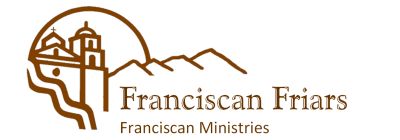Millennials are changing our culture in profound ways. One is their adoption and promotion of the sharing economy, sometimes described as the circular economy”. Chances are you are already participating in it. If you have used a car sharing app like Uber or a home sharing app like Airbnb, or clothes sharing service like Rent the Runway, you have participated in the sharing economy. If you have given a friend a loan or borrowed your neighbors bundt pan instead of buying your own new one, you are participating in the sharing economy. Professor Godelik, in his (2017). Millennials and the sharing economy project: Lessons from a ‘buy nothing new, share everything month’ project, describes it “as adopting a new mindset in which access to goods and services is seen as more valuable than ownership of them.
That mindset is very Franciscan. I first learned about it from a friar who told me that the tag sewn into his collar was that of another friar who had passed on. “We live by this idea, he said, of sine proprio. It means that we live without possessing. We don’t consider the things we have as “ours”. Rather they are for our use when we need them but meant to be given or shared with others when they need them. Everything is a gift from God, he said, so we share our gifts and receive gifts from others.”
Today, we would describe that as a circular, or sharing, mindset. St. Francis made this point in the rule he wrote back in the 13th century. The first sentence reads, “The rule and life of the lesser brothers is this: To observe the holy gospel of our Lord Jesus Christ, living in obedience without anything of our own…”
Franciscan beliefs are not exclusive to Franciscans. Millennials who are, and who are not affiliated with us, are leading a cultural shift that expands our duty to care for creation and promotes a life of “not possessing,” Of course I am generalizing, and not every individual millennial feels this way (and many dislike the term millennial). However, those that do may be in the best position to carry this element of the Franciscan Movement forward.
Sharing rather than buying can have a big impact. For example, consider the impact of wearing clothes longer or donating them to others who will wear them rather than buy something new. Scientific American reports that “Research by Waste and Resources Action Program (WRAP), a sustainability advisory group in England, “shows extending the average life of clothes by just three months of active use per item would lead to a 5 to 10 percent reduction in each [item’s] carbon, water and waste footprints,”
Companies have taken this trend seriously. Besides the 100’s of sharing companies that have emerged, like Camp in my Garden and Fivver, established companies are adapting. Just yesterday I received a postcard from REI announcing that they will accept used gear. Their encouragement: “…feel good about participating in the circular economy…”
Bill Short, Franciscan scholar and Dean of our Franciscan School of Theology uses the image of an open hand to describe this Franciscan way of life. When your hand is open it can both give and receive. Millennials seem to intuitively understand that. I am grateful they are spreading the word.
To learn more about the Franciscan Movement explore the lectures and classes offered by our Franciscan School of Theology at www.fst.edu

